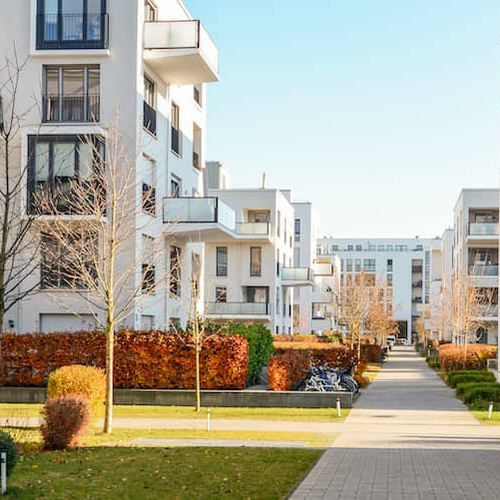FHA home loan closing costs: How much should I expect to pay?
May 2, 2024
•5-minute read

If you’re in the market for a new home, especially your first, you may want to consider using a Federal Housing Administration (FHA) loan. These loans are similar to conventional ones but tend to be easier to qualify for and are generally more affordable in the long run.
Like conventional loans, when you get an FHA loan, you’ll have to pay closing costs. These costs can be a little different from conventional ones, so let’s take a look at the components of FHA closing costs and some strategies for reducing them.
What are FHA closing costs?
No matter the type of home loan you choose, all mortgages come with closing costs. The general rule of thumb is to plan on having between 3% – 6% of your total loan amount on hand for closing costs.
The closing costs with an FHA loan come with a mix of costs and fees that differ from those of conventional loans.
What are the benefits of an FHA home loan?
Essentially, FHA loans are an option for borrowers who might not qualify for a conventional loan. They typically require 3.5% down and are available to individuals with past credit problems and lower credit scores.
FHA loans are also designed with some flexibility and can be manually underwritten. That means borrowers have an opportunity to get approved for a loan even if they don’t have a strong credit history.
Next, let’s take a look at what your closing costs are composed of with an FHA loan and some strategies for reducing them.
FHA closing costs: A closer look
What are home buyers paying for at closing? There are many moving parts to a home purchase and getting an FHA mortgage. Let’s explore some items you could be responsible for paying.
Upfront Mortgage Insurance Premium (MIP)
The FHA collects Mortgage Insurance Premiums (MIPs) to fund its operations. First, you’ll need to pay an upfront MIP equal to 1.75% of the home’s purchase price.
So, if you buy a $300,000 home, you’d pay $5,250 in upfront MIP. You may be able to add that to your mortgage so you don’t need to have the cash at closing. However, it’ll make your mortgage payments more expensive over time.
In addition, you’ll need to pay an annual MIP, which is divided up and added to your monthly mortgage payment. Your annual MIP will vary depending on the amount of your loan, the size of your down payment and the length of your repayment term.
Lender fees
When you apply for your mortgage, your lender begins the underwriting process. This is an assessment of the amount of risk you present as a borrower based on your financial information. Your lender will gather your information, review it and prepare all the documents for closing.
The home buyer reimburses the lender for these activities on their behalf by paying:
- A mortgage origination fee
- An underwriting fee
- A document preparation fee
Third-party fees
While not an all-inclusive list depending on your situation and location, these are the most common third-party fees home buyers pay at closing:
- Owner’s title insurance policy premium
- Notary fee
- Credit report fee
- County clerk’s recording fees
- Appraisal fees
- Courier fee
- Real estate attorney fees
- Flood certification fee
Prepaid expenses
Prepaid expenses aren’t technically closing costs, but you’ll have to pay them around the same time, so it’s helpful to think of them in the same category. These include expenses like prepaid insurance and taxes, prepaid interest and initial escrow payments at closing.
When will I find out my exact closing costs?
At least 3 business days prior to closing, you’ll receive a Closing disclosure. This will provide an exact list of all your costs and what you owe.
It’s very important that you read your Closing Disclosure carefully and make sure there are no errors. The disclosure should contain all the information regarding your loan.
How can I reduce my FHA closing costs?
Closing costs may seem like a strain when added to your down payment and other home buying costs. Here are some strategies that might help you reduce the potential burden of these costs.
Ask for seller concessions
Seller concessions are a way for the seller to assume some of the buyer’s costs and reduce the demand on their cash at closing. Simply put, the seller agrees to pay some of the buyer’s costs. In a seller’s market, it may be harder to negotiate concessions since sellers have the upper hand. In a buyer’s market, on the other hand, a buyer can potentially ask sellers to assume some of the closing costs without reimbursement.
However, with an FHA loan, government regulations limit the amount a seller can pay toward a buyer’s costs. That’s because the government doesn’t want to inflate housing prices by allowing sellers to, for example, agree to sell their house for $200,000 but offer to pay $50,000 in seller concessions. For this reason, the FHA limits seller concessions to up to 6% of the purchase price.
Negotiate with your lender
The saying “it never hurts to ask” applies to mortgage lenders as well. For example, your lender may be willing to waive a courier or wire transfer fee for you upon request. Though you won’t always get something waived, there’s always a chance you could. Don’t be afraid to negotiate with your prospective lender about closing costs. The worst they can do is say no.
Accept gifts from benefactors
To qualify for an FHA loan, you must comply with the FHA’s regulations. They allow you to use gifts from these sources toward your down payment and closing costs:
- Borrower’s family member
- Borrower’s employer or labor union
- A close friend with a clearly defined interest in the borrower
- A charitable organization
- A governmental agency assisting low/middle-income families or first-time home buyers
There are rules in place regarding the use of FHA gift funds when applying for a mortgage. Lenders will generally want you to provide a gift letter or explain any gift that’s over half the amount of your household’s monthly income.
Home buyer assistance programs
A wide variety of government and housing nonprofit programs exist to help first-time or lower-income households attain homeownership, which remains one of the most important ways to accumulate wealth in the U.S.
First-time home buyer assistance programs are generally available to anyone who hasn’t lived in a home they owned for the past 3 years.
The Department of Housing and Urban Development (HUD) maintains a database of all local resources offering home buying assistance. See if your state or city offers assistance that can help you get to closing with the cash you need.
FHA closing costs FAQs
When you’re learning the ins and outs of mortgages, it can seem overwhelming to keep it all straight. We’re here to answer all of your home buying questions.
Does an FHA loan cover closing costs?
You can roll your closing costs into the loan and pay them off along with the principal. It’s called a no-closing-cost loan. Of course, there’s a downside: You’ll have to pay interest on your closing costs, which means it will likely be more expensive in the long run.
Where do I go to get an FHA loan?
The FHA insures loans from private lenders that align with its requirements. Here at Rocket Mortgage®, we offer conventional, FHA and VA loans. Not every lender offers FHA loans but many do – so be sure to shop around to get an idea of various lenders’ offerings.
Can I buy a multifamily home with an FHA loan?
The FHA defines a multifamily property as any home with 2 – 4 units. You can use an FHA loan to purchase a multifamily home as long as you occupy one of the units for a minimum of 1 year.
The bottom line
No matter what type of mortgage you ultimately choose, closing costs will be a factor in your home buying experience. Because FHA closing costs include the upfront MIP, an FHA loan can have average closing costs on the higher end of the typical 3% – 6% range.
That doesn’t diminish in any way the value of getting an FHA mortgage, with its low down payment, lower interest rates and flexible underwriting.
Ready to apply for your FHA or conventional loan? Start an application now and find the best option for you.

Victoria Araj
Victoria is a former Team Leader of editorial content at Rocket Mortgage and she held roles in mortgage banking, public relations and more in her 19+ years with the company. She holds a bachelor’s degree in journalism with an emphasis in political science from Michigan State University, and a master’s degree in public administration from the University of Michigan.
Related resources

9-minute read
How to get a mortgage preapproval
Mortgage preapproval is an important step in your home-buying journey that helps you understand your borrowing ability. Find out what the process involves.
Read more

8-minute read
Ultimate mortgage preapproval checklist
Are you getting ready to apply for a home loan? Use our complete mortgage preapproval checklist to make sure you have everything you need before you apply.
Read more

5-minute read
Prequalified vs. preapproved: what’s the difference?
A prequalification estimates how much you can afford, while a preapproval gives a better estimate and verifies your financial info for a loan. Learn more.
Read more